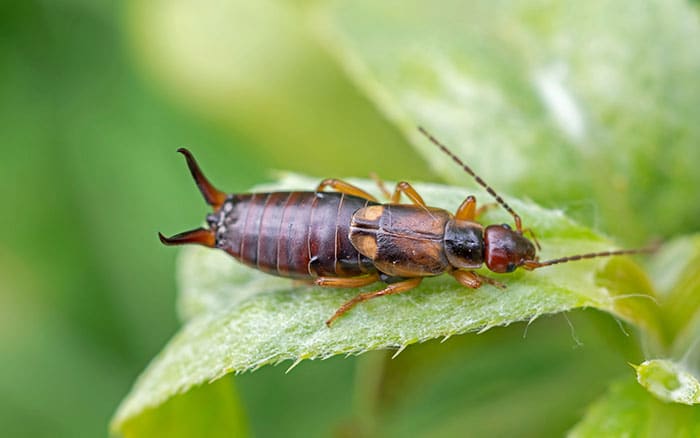Although earwigs can cause damage to plants, they like to feed on aphids. Therefore, they can also be described as the gardener’s friend. Find out more about these insects in this pest & disease guide to earwigs.
What are earwigs?
Earwigs are omnivorous insects, feeding on plants and other invertebrates. The most common type found in Britain is Forficula auricularia. It’s up to 15mm long and has a distinctive pair of pincers displayed on its rear end.
The females tend to overwinter under stones and wood. They lay their eggs in December and January, into small chambers they’ve made in the soil. Then, they stay with them until the eggs hatch and the resulting young nymphs mature in early summer.
Adults don’t tend to move far from where they were bred and so it’s quite easy to remove them once you’ve found a colony.
They tend to hide during the day and feed after dark, mainly on the leaves and flowers of dahlia, cosmos, clematis, and chrysanthemum plants.

How to control earwigs
There are a couple of easy ways to control them.
Firstly, check plants that tend to attract earwigs, like dahlias. From spring, check plants regularly to catch them before too many build up in that area or on that plant.
Put straw into an upturned small flowerpot and place it on a bamboo cane or hazel stick next to the flowering plants that are, or may be damaged, by the earwigs. Check the flowerpot regularly and humanely dispose of any of the creatures found in the straw.
Placing corrugated cardboard or old hessian on soil, or around tree trunks, will also attract earwigs.
Remember though that earwigs can be helpful in feeding on aphids. They really good at keeping aphid numbers down on fruit trees so, where possible, try to tolerate them as being part of the natural wildlife balance.


Leave A Comment